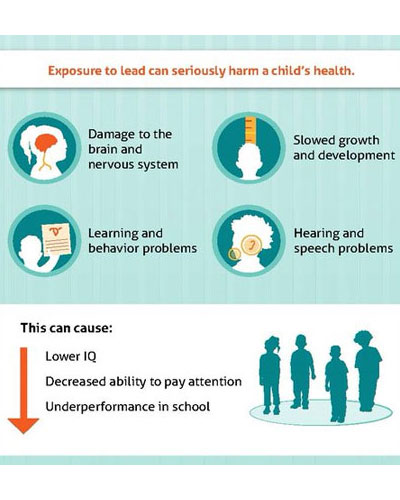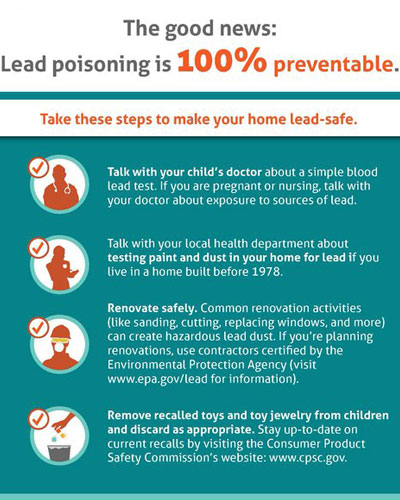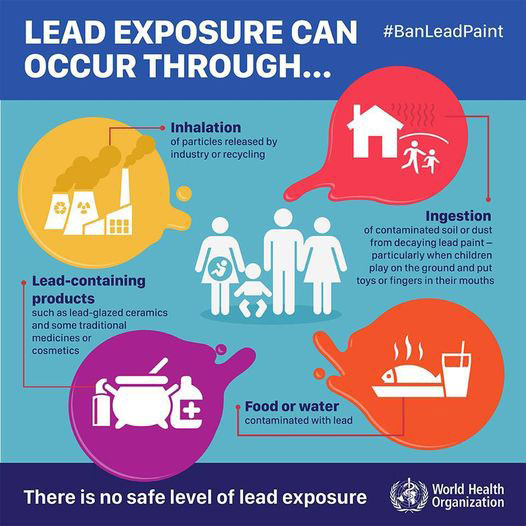Unfortunately, lead is a poison and harms people if it enters the body. Once lead enters an individual, there is no way to destroy it or make it harmless. Therefore, we must control the exposure children have to lead. Identifying where lead may be located in your child’s environment, and removing it quickly is the best way to prevent lead toxicity. Exposure to lead can have a wide range of effects on a child’s development and behavior.
No level of lead in the blood is considered safe. Studies have found that even small levels of lead in a child’s blood have been associated with decreased intelligence in children, behavioral difficulties and learning problems. Very high levels of lead exposure can cause coma, seizures and death.”
Symptoms of lead toxicity are varied. They may affect many parts of the body. Most of the time, lead toxicity builds up slowly and is the result of repeated exposures to small quantities of lead. You may not notice any symptoms at first. Most children with lead in their blood have no symptoms and those symptoms that do develop are easy to miss or may seem related to other conditions. The higher the lead content in the body, the more severe the effects. Many of those effects are permanent.
Exposure to lead can cause:
- Developmental delay
- Learning difficulties
- Lower intelligence
- Language or speech delays
- Irritability
- Headaches
- Weight loss
- Sluggishness and fatigue
- Hearing loss
- Seizures
- Sleep problems
- Muscle and joint weakness
Lead toxicity can also damage an unborn child’s brain, kidneys, and nervous system. Pregnant women should talk with their doctor about getting tested, especially if they answer yes to any questions found on this “Prenatal Risk Evaluation Questionnaire”, available in English and Spanish.
If you think your child has been in contact with lead, contact your child’s health care provider. He or she can help you decide whether to test your child’s blood. A blood lead test is the best way to find out if your child has a high lead level. Your child’s health care provider can recommend needed services if your child has been exposed to lead.




